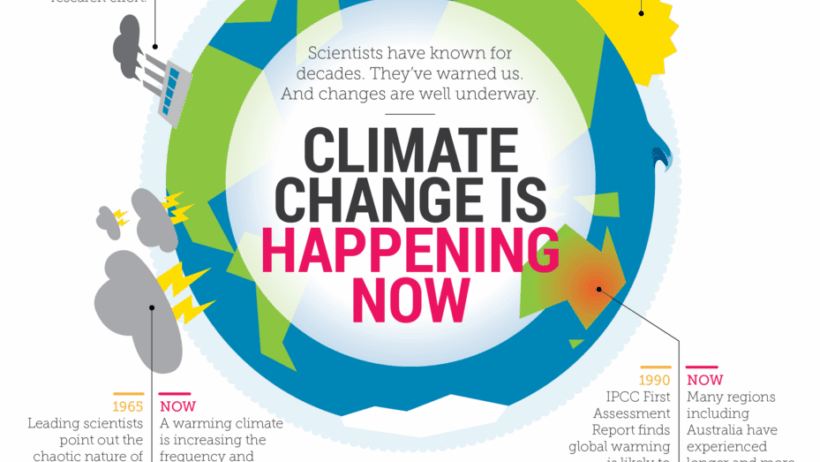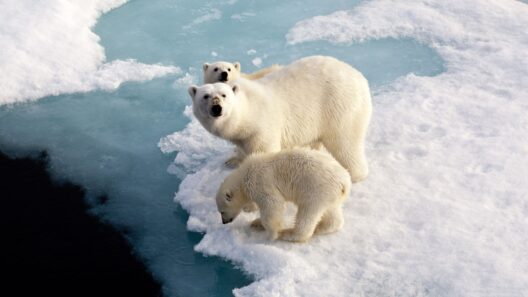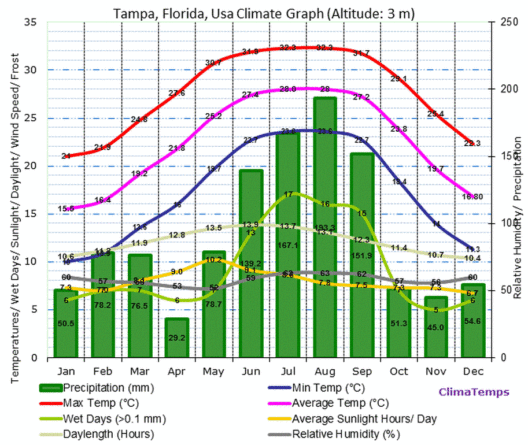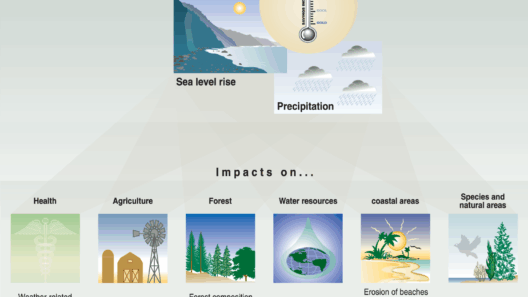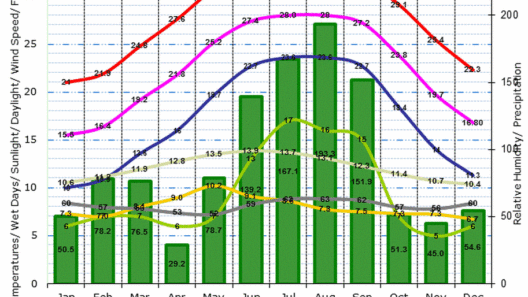The specter of climate change looms large over the world, manifesting itself through myriad consequences that are already taking shape across every continent. Its ominous presence is not a distant threat looming on the horizon; rather, it is an escalating reality. This article elucidates ten significant consequences of climate change that we are experiencing right now, underscoring the urgent need for collective action.
1. Rising Global Temperatures
One of the most indisputable repercussions of climate change is the ascent in global temperatures. Average surface temperatures have escalated by about 1°C since the late 19th century. This seemingly minor increase belies its potential to wreak havoc on natural and human systems. Ecosystems are being pushed beyond their adaptive capacities, leading to biodiversity loss as species either migrate to more hospitable climates or face extinction.
2. Extreme Weather Events
The manifestation of extreme weather phenomena—storms, droughts, and heatwaves—has intensified. For instance, hurricanes are growing more ferocious, fueled by warmer ocean waters. Such events precipitate devastating consequences, including catastrophic property damage, displacement of populations, and acute strain on emergency services. The insurance industry, in particular, feels the brunt as claims surge following such weather disasters.
3. Melting Polar Ice Caps and Glaciers
Climate change is triggering rapid ice loss from both polar regions. The Arctic and Antarctic ice caps are shrinking, contributing to rising sea levels. Glacial retreat is also observable in mountainous regions worldwide, posing a dual threat: diminishing water supplies for millions who rely on glacial melt for freshwater and exacerbating sea-level rise, which threatens coastal communities even further.
4. Ocean Acidification
As atmospheric carbon dioxide levels rise, oceans absorb a significant portion of this gas, resulting in acidification. This phenomenon is detrimental to marine life, particularly organisms with calcium carbonate structures such as coral reefs and shellfish. The destabilization of these ecosystems will not only impair marine biodiversity but also jeopardize the livelihoods of those dependent on fishing and tourism, creating socioeconomic ripples far beyond the immediate impact on the environment.
5. Disruption of Ecosystems
Climate change instigates profound alterations in ecosystems, disrupting established ecological relationships. Species that once coexisted harmoniously are now in conflict, as shifting climates prompt migrations and invasions of non-native species. This disruption undermines food webs and leads to a precarious imbalance in biodiversity, essential for ecosystem services such as pollination, which is crucial for global food security.
6. Threats to Food Security
Shifts in climate patterns directly impact agricultural productivity. Erratic weather events, such as droughts and floods, can devastate crops, leading to lower yields. Such inconsistencies pose a grave threat to food security, particularly in developing countries where populations may already be vulnerable. Rising temperatures may also diminish the nutritional value of staple crops, further exacerbating the health risks associated with food scarcity.
7. Public Health Implications
Climate change is poised to reshape public health landscapes. Increased temperatures are facilitating the proliferation of vector-borne diseases such as malaria and dengue fever as insects thrive in warmer climates. Additionally, heatwaves lead to increased mortality rates, particularly among vulnerable populations such as the elderly and those with pre-existing health conditions. The stress on healthcare systems is palpable, as they grapple with the surge in climate-related ailments.
8. Water Scarcity
The world is witnessing an alarming rise in water scarcity, a direct offshoot of climate change. Changes in precipitation patterns lead to prolonged periods of drought in some regions while other areas experience extreme flooding. As freshwater becomes an increasingly precious resource, the implications for both urban and rural communities are stark, spilling into issues related to hygiene, food production, and socio-political stability.
9. Loss of Biodiversity
As habitats become inhospitable due to rising temperatures and shifting climates, a tragic consequence is the loss of biodiversity. Extinction rates are accelerating at an alarming pace, with entire ecosystems at risk. The interdependence of species means that the loss of one could lead to cascading effects throughout the food web, ultimately compromising the ecological integrity upon which all life relies.
10. Social and Economic Displacement
As environments become increasingly uninhabitable due to climate change, millions are forced to become climate migrants—leaving behind their homes and livelihoods. This displacement precipitates significant social and economic challenges, including increased migration pressures, potential conflict over resources, and heightened strain on urban infrastructures. The ramifications are felt worldwide, as nations grapple with integrating displaced populations while ensuring social cohesion.
In summation, the multifaceted consequences of climate change are not merely predictions for the future; they are crystalline realities unfolding before us. Each facet, from rising temperatures to biodiversity loss, underscores an undeniable truth: action must be taken, and it must be taken now. The time for vocal advocacy and concerted efforts toward sustainability is not just a choice; it has become an imperative for the survival of both humanity and the planet as a whole.


